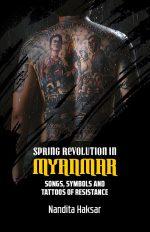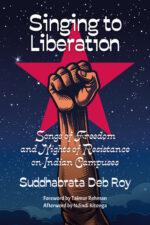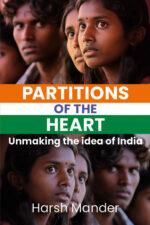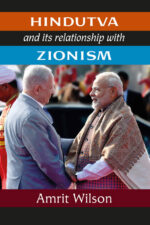-
Spring Revolution in Myanmar
Myanmar is synonymous with ethnic conflicts, brutal military repression and insurgencies. The ongoing civil war against the junta has been described as the longest and one of the most violent conflicts in the world today with a growing humanitarian crisis.
This book celebrates the spirit of defiance, resilience and enormous courage of the Burmese people in the face of the military regime’s extreme violence. It is a window into the world of Burmese resistance and the myriad cultural expressions that it has taken ever since the February 2021 coup. Crowdfunded by the Burmese diaspora, but largely ignored by the international community, this is a resistance where every cultural form – poems, songs and even tattoos – has been explored as a weapon.
The regime has tried to ban these songs of resistance, and persecuted and even executed artists, musicians and poets. But as poet Khet Thi (1986-2021) said, before he was killed by the junta, “You try to bury us underground, because you don’t know that we are the seeds.”
-
Viyyukka – The Morning Star
Viyyukka: The Morning Star is a rare and compelling anthology of stories written in Telugu over four decades by nearly fifty Maoist women revolutionaries in India. The title, Viyyukka, is a Gondi word meaning morning star. This collection is unique because these narratives are not traditional fiction; they are “lived experiences written from within the movement” while the authors served as guerrilla soldiers, often under extreme duress.
The stories offer a vital glimpse into the human dimensions of armed struggle, highlighting the agency, resilience, and moral consciousness of the women participants. The authors, active in India’s ongoing revolutionary conflict, document everything from tactical and ideological engagements to intimate realities such as love, loss, and camaraderie within their squads.
At its core, the Morning Star series centers on the fierce struggle for survival: of people, forests, rivers, and a way of life. The narratives capture how local struggles against exploitation and dispossession evolved into a wider movement challenging the “Iron Heel of the Indian State” and global capital.
Geographically rooted in Central Indian regions like Dandakaranya, the book vividly portrays the Adivasi (indigenous) resistance for the defense of jal, jangal, and jameen (water, forest, and land). The resistance documented in these pages, particularly against corporate mining and state repression, shares a “common thread” with the struggles of indigenous communities across the globe, positioning this collective testimony as a crucial document of resistance against colonial and capitalist forces.
-
(Bengali edition) হিন্দুত্ববাদ ও ইহুদী জাতীয়তাবাদ : একটি ক্রমবর্ধমান সম্পর্ক)
USD $ 5.00 USD $ 10.00Price range: USD $ 5.00 through USD $ 10.00Select options This product has multiple variants. The options may be chosen on the product page(Bengali edition) হিন্দুত্ববাদ ও ইহুদী জাতীয়তাবাদ : একটি ক্রমবর্ধমান সম্পর্ক)
USD $ 5.00 USD $ 10.00Price range: USD $ 5.00 through USD $ 10.00This is a Bengali translation of Hindutva and its relationship with Zionism, by Amrit Wilson: ISBN 978-1-990263-76-7. Written in December 2022, this text is based on a lecture given earlier at the invitation of the Institute of Palestine Studies. Since then, the relationship between Israel and India has deepened further and atrocities have skyrocketed in both countries. On 5 April 2023, Israeli forces stormed Al Aqsa Mosque compound in occupied East Jerusalem and attacked worshippers inside. At the same time, Israel is facing internal turmoil in a battle between a diverse group, including those who think the current settler colony is a democratic nation and want things to remain as they are, and those who stand even further to the right. Significantly, the BJP, India’s ruling party, supports the latter. This book is about Hindutva, the ideology which drives the Hindu-supremacist Bharatiya Janata Party (BJP) regime of Prime Minister Narendra Modi, and Zionism, the ideology of the Israeli apartheid state. In this era of rising fascism, these two remarkably similar ideologies are crucially important in cementing the economic and military alliance between two of the world’s most repressive right-wing states – while helping to legitimize them in cultural arenas. Israel is, of course, a settler colonial state, but it is also, like India, a fascist state, not only because of ‘the extremist parties that [are] part of the government’ but also because of ‘their enablers – Netanyahu and his chauvinistic Likud party which long strove for a Jewish state dominating both sides of the Jordan River.’ In the words of Marwan Bishara, Netanyahu is ‘the godfather of modern Israeli fascism.’ This essay focuses primarily on Hindutva, discussing Zionism mainly to highlight its similarities, links and increasing alliances with Hindutva.
Select options This product has multiple variants. The options may be chosen on the product page -
Hindutva and its relationship with Zionism
USD $ 5.00 USD $ 11.00Price range: USD $ 5.00 through USD $ 11.00Select options This product has multiple variants. The options may be chosen on the product pageHindutva and its relationship with Zionism
USD $ 5.00 USD $ 11.00Price range: USD $ 5.00 through USD $ 11.00Written in December 2022, this text is based on a lecture given earlier at the invitation of the Institute of Palestine Studies. Since then, the relationship between Israel and India has deepened further and atrocities have skyrocketed in both countries. On 5 April 2023, Israeli forces stormed Al Aqsa Mosque compound in occupied East Jerusalem and attacked worshippers inside. At the same time, Israel is facing internal turmoil in a battle between a diverse group, including those who think the current settler colony is a democratic nation and want things to remain as they are, and those who stand even further to the right. Significantly, the BJP, India’s ruling party, supports the latter. This book is about Hindutva, the ideology which drives the Hindu-supremacist Bharatiya Janata Party (BJP) regime of Prime Minister Narendra Modi, and Zionism, the ideology of the Israeli apartheid state. In this era of rising fascism, these two remarkably similar ideologies are crucially important in cementing the economic and military alliance between two of the world’s most repressive right-wing states – while helping to legitimize them in cultural arenas. Israel is, of course, a settler colonial state, but it is also, like India, a fascist state, not only because of ‘the extremist parties that [are] part of the government’ but also because of ‘their enablers – Netanyahu and his chauvinistic Likud party which long strove for a Jewish state dominating both sides of the Jordan River.’ In the words of Marwan Bishara, Netanyahu is ‘the godfather of modern Israeli fascism.’
This essay focuses primarily on Hindutva, discussing Zionism mainly to highlight its similarities, links and increasing alliances with Hindutva.Select options This product has multiple variants. The options may be chosen on the product page -
Select options This product has multiple variants. The options may be chosen on the product page
ہندوتواہ اور صیہونیت کے ساتھ اس کا تعلق(Urdu edition)
USD $ 5.00ہندوتواہ
اور صیہونیت کے ساتھ اس کا تعلقاَمرت وِلسن
اسرائیل پر لیکچرز کا سلسلہ
معاون: لاہورہ آلباسٹ ، ادارہ برائے مطالعہ فلسطین ، یو ایس اے
ثالث: ڈاکٹر وریندر سنگھ کالرا
ایڈیٹر: طارق محمود ، امریکن یونیورسٹی بیروتدسمبر 2022 میں لکھا گیا، یہ متن انسٹی ٹیوٹ آف فلسطین سٹڈیز کی دعوت پر دیے گئے ایک لیکچر پر مبنی ہے۔ اس کے بعد سے اسرائیل اور بھارت کے تعلقات مزید گہرے ہوئے ہیں اور دونوں ممالک میں مظالم آسمان کو چھونے لگے ہیں۔ 5 اپریل 2023 کو اسرائیلی فورسز نے مقبوضہ مشرقی یروشلم میں مسجد اقصیٰ کے احاطے پر دھاوا بول دیا اور اندر نمازیوں پر حملہ کیا۔ ایک ہی وقت میں، اسرائیل کو ایک متنوع گروہ کے درمیان لڑائی میں اندرونی انتشار کا سامنا ہے، جن میں وہ لوگ بھی شامل ہیں جو یہ سمجھتے ہیں کہ موجودہ آباد کار کالونی ایک جمہوری قوم ہے اور چاہتے ہیں کہ چیزیں جوں کی توں رہیں، اور وہ بھی جو دائیں طرف کھڑے ہیں۔ اہم بات یہ ہے کہ بھارت کی حکمران جماعت بی جے پی مؤخر الذکر کی حمایت کرتی ہے۔ یہ کتاب ہندوتوا کے بارے میں ہے، وہ نظریہ جو وزیر اعظم نریندر مودی کی ہندو بالادستی بھارتیہ جنتا پارٹی (بی جے پی) حکومت کو چلاتا ہے، اور صیہونیت، اسرائیلی نسل پرست ریاست کا نظریہ۔ ابھرتے ہوئے فاشزم کے اس دور میں، یہ دونوں نمایاں طور پر ملتے جلتے نظریے دنیا کی دو سب سے زیادہ جابرانہ دائیں بازو کی ریاستوں کے درمیان اقتصادی اور فوجی اتحاد کو مضبوط بنانے میں انتہائی اہم ہیں – جبکہ ثقافتی میدانوں میں انہیں قانونی حیثیت دینے میں مدد فراہم کرتے ہیں۔ اسرائیل بلاشبہ ایک آبادکار نوآبادیاتی ریاست ہے، لیکن یہ بھارت کی طرح ایک فاشسٹ ریاست بھی ہے، نہ صرف ‘انتہا پسند جماعتوں جو کہ حکومت کا حصہ ہیں’ کی وجہ سے بلکہ ‘ان کے اہل کاروں – نیتن یاہو اور مروان بشارا کے الفاظ میں، نیتن یاہو ‘جدید اسرائیلی فاشزم کا گاڈ فادر’ ہے۔
Written in December 2022, this text is based on a lecture given earlier at the invitation of the Institute of Palestine Studies. Since then, the relationship between Israel and India has deepened further and atrocities have skyrocketed in both countries. On 5 April 2023, Israeli forces stormed Al Aqsa Mosque compound in occupied East Jerusalem and attacked worshippers inside. At the same time, Israel is facing internal turmoil in a battle between a diverse group, including those who think the current settler colony is a democratic nation and want things to remain as they are, and those who stand even further to the right. Significantly, the BJP, India’s ruling party, supports the latter. This book is about Hindutva, the ideology which drives the Hindu-supremacist Bharatiya Janata Party (BJP) regime of Prime Minister Narendra Modi, and Zionism, the ideology of the Israeli apartheid state. In this era of rising fascism, these two remarkably similar ideologies are crucially important in cementing the economic and military alliance between two of the world’s most repressive right-wing states – while helping to legitimize them in cultural arenas. Israel is, of course, a settler colonial state, but it is also, like India, a fascist state, not only because of ‘the extremist parties that [are] part of the government’ but also because of ‘their enablers – Netanyahu and his chauvinistic Likud party which long strove for a Jewish state dominating both sides of the Jordan River.’ In the words of Marwan Bishara, Netanyahu is ‘the godfather of modern Israeli fascism.’
Select options This product has multiple variants. The options may be chosen on the product page







